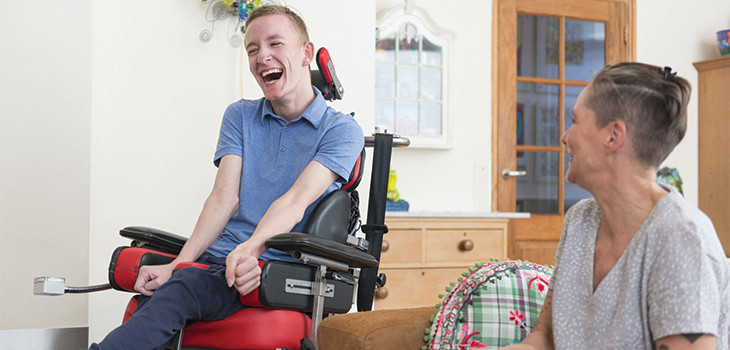
Across the profession, lawyers recognise the need to secure justice for those who are unable to cover the cost of legal advice and representation. Both legal aid and pro bono ensure that those in need are not denied their right to justice and they demonstrate the profession’s commitment to the most vulnerable. As Andrea Dawkins, former South West London Law Centres (SWLLC) chair said in 2002: ‘It is a simple fact that many…would have been denied their rights and had no access to justice had it not been for this voluntary effort.’
Integration
Today, a range of organisations have found ways to integrate the two. RCJ Advice established Finding Legal Options for Women Survivors (FLOWS), providing pro bono and legal aid via their online service, CourtNav. South West London Law Centres (SWLLC) are clear that online systems should ‘broaden, not restrict access’, and CourtNav proves how effective such a system can be at improving access to legal aid and pro bono alike, with legally aided services delivered to 7998 survivors, and 1167 survivors completing a successful FL401 application with help from either the FLOWS team or a pro bono lawyer. ‘Many survivors [accessing CourtNav],’ RCJ Advice say, ‘had child cases or divorce enquiries which the pro bono solicitors on the family rota responded to.’
Bristol Law Centre have employed a similar approach, creating the Bristol Pro Bono Group with firms and universities to support the delivery of pro bono advice, while the centre continues its legal aid provision.
Karen Bowers, CEO, says that over the last year, the centre has restructured its triage service to ‘[establish] when pro bono is the best solution and when the staff team is better placed to respond’. She describes pro bono as a vital supplement’, and the centre has a significant pro bono provision, with 50 volunteer lawyers taking 10–15 appointments each week alongside the Centre’s legal aid services.
A pathway
Kids In Need of Defence UK (KIND UK), who assist children without secure immigration status, describe pro bono as ‘a pathway to accessing legal aid that would have otherwise been closed’. While they are primarily a pro bono organisation, they say that ‘pro bono is not the whole story’. Each of KIND UK’s hubs has a legal aid practice so that eligible cases can be referred to legal aid at any point in their progression. KIND UK says that pro bono contributes valuably in such legally aided cases, providing an ‘enhanced service’ of advice and representation to the children they support.
Like KIND UK’s immigration cases, community care cases are not automatically eligible for legal aid. Access Social Care provides free legal help to adults with care needs and have increased capacity by working with pro bono lawyers. They have also trained volunteers from law firms ‘to develop a secondary specialisation in community care law, and supervised by [Access Social Care’s] lawyers, they provide end-to-end casework’. They report that specialists at Fieldfisher have given ‘hundreds of hours’ of pro bono support to families at inquests into the deaths of their loved ones with learning disabilities. Their work reflects the significant size of the contribution of pro bono in securing access to justice for vulnerable adults. Currently, Access Social Care are working on an internal data-gathering project ‘to evidence that there are people with meritorious cases that are not able to find a legal aid lawyer to help them’.
Working in unison
The relationship between pro bono and legal aid can seem contentious at times, with some expressing concern that pro bono is expected to fill the widened gaps in legal aid provision. SWLLC emphasise that pro bono is not a substitute for legal aid, but that legal aid can and should ‘work in unison with the goodwill of solicitors’ pro bono initiatives to improve access to justice’. SWLLC run one of the largest pro bono advice clinics in the UK, with around 400 lawyers volunteering to advise over 3,000 people yearly. They see complex cases where one-off pro bono advice is not the best solution; where a continuation of advice is needed, but where legal aid is not available to facilitate this.
Pro bono is not a replacement for legal aid, but it makes essential contributions to enhancing the quality and versatility of legal advice for those of limited financial means. The integration of the two services as demonstrated by KIND UK and FLOWS show keenly how each can enhance and support the other to guarantee the best possible service for people in need.
They are an effective pair when given room to flourish as complementary components rather than placed in opposition. There is a breadth of varied opinion on legal aid provision and the role of pro bono, but both areas share a common goal; they seek to protect and provide access to justice for the most vulnerable.










